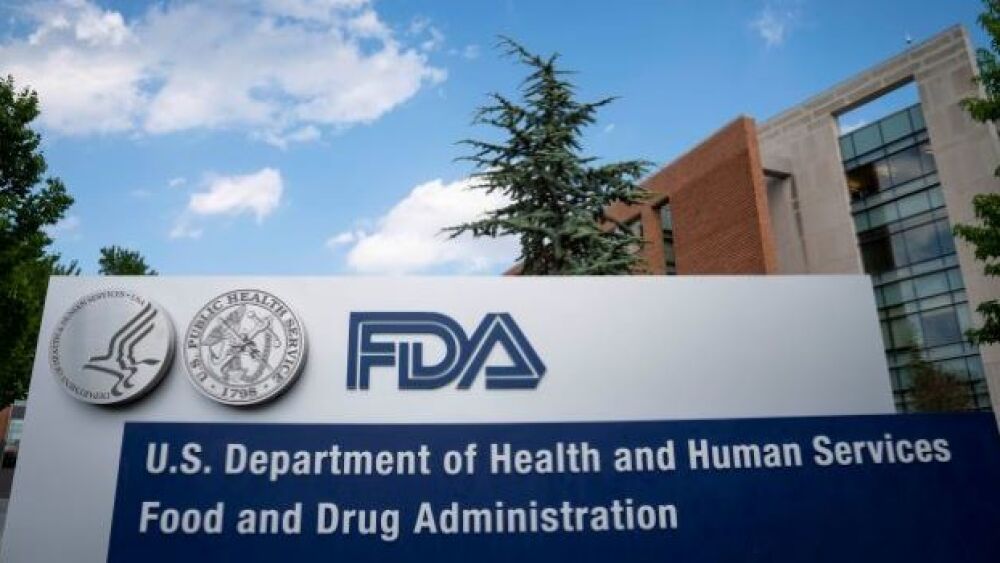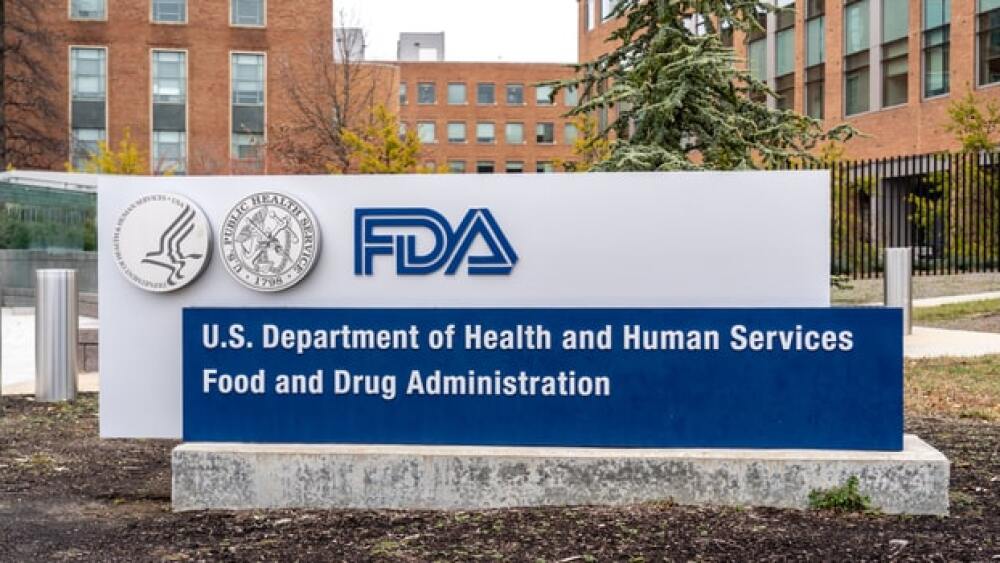The fate of three cancer immunotherapies that had been authorized under the U.S. Food and Drug Administration’s Accelerated Approval pathway will be determined next week following failures in confirmatory trials.
Sarah Silbiger/Getty Images
The fate of three cancer immunotherapies that had been authorized under the U.S. Food and Drug Administration’s Accelerated Approval pathway will be determined next week following failures in confirmatory trials.
The FDA’s Oncologic Drugs Advisory Committee will review products approved under the pathway for breast, urothelial, gastric, and hepatocellular cancers. Specifically, the advisory committee will discuss Merck’s Keytruda (pembrolizumab), Bristol Myers Squibb’s Opdivo (nivolumab), and Roche’s Tecentriq (atezolizumab). Each of these checkpoint inhibitors had been approved under the accelerated pathway, but required confirmatory trials. Keytruda was approved for gastric or gastroesophageal junction adenocarcinoma, hepatocellular carcinoma, and urothelial carcinoma. Opdivo was approved as a single agent treatment for hepatocellular carcinoma and Tecentriq was approved in triple-negative breast cancer and urothelial carcinoma.
“We are committed to ensuring the integrity of the accelerated approval program, which is designed to bring safe and effective drugs to patients with unmet medical needs as quickly as possible. The program allows the FDA to approve a drug or biologic product intended to treat a serious or life-threatening condition based on an outcome that can be measured earlier than survival that demonstrates a meaningful advantage over available therapies. However, when confirmatory trials do not confirm clinical benefit, a reevaluation must be performed to determine if the approval should be withdrawn,” the committee said in a statement.
The meeting has been called after these checkpoint inhibitors have been withdrawn for use in other indications over the past five months. Most recently, Merck withdrew Keytruda for use as a treatment in patients diagnosed with metastatic small cell lung cancer (SCLC) with disease progression on or after platinum-based chemotherapy and at least one other previous line of therapy. Keytruda was first approved for this indication in 2019, but in January of this year, the company reported the confirmatory Phase III study, KEYNOTE-604, only met one of the dual primary endpoints. In that study, Keytruda met the endpoint for progression-free survival, but did not reach statistical significance for the other primary endpoint of overall survival. The company withdrew Keytruda in this indication after announcing the confirmatory trial results.
AstraZeneca and Roche have also pulled some of their oncology drugs following confirmatory trial failures. In February, AstraZeneca pulled the use of its checkpoint inhibitor Imfinizi in bladder cancer following a post-approval confirmatory trial failure. The FDA first authorized Imfinzi for this indication in 2017. However, AstraZeneca pulled the plug after the Phase III DANUBE study missed the mark of improving overall survival in patients with advanced bladder cancer who have previously been treated with platinum-containing chemotherapy.
Two weeks after AstraZeneca pulled Imfinizi, Roche also pulled Tecentriq in bladder cancer. The Swiss pharma giant pulled Tecentriq for use in prior-platinum treated metastatic urothelial carcinoma (mUC) after failing to meet its confirmatory goals. Tecentriq was first authorized for this indication in 2016. Hints to this failure were first seen in 2017 when Tecentriq failed to hit the mark in a Phase III bladder cancer study as a second-line treatment.
In late December 2020, BMS withdrew Opdivo as a treatment for patients with small-cell lung cancer (SCLC) whose disease has progressed after platinum-based chemotherapy and at least one other line of therapy. Like the other checkpoint inhibitors, Opdivo failed to live up to expectations in this indication. When Opdivo was approved for this setting in 2018, it was the first new drug for this indication in 20 years.
The FDA’s Accelerated Approval Program allows people with difficult-to-treat cancers to receive certain new therapies earlier. However, part of the conditions for accelerated approval includes post-marketing requirements that confirm the safety and efficacy of the treatment. Over the past few months, the FDA has been running an industry-wide evaluation of its accelerated approvals with a focus on determining which have not met post-marketing requirements. The FDA’s Oncology Center of Excellence called the advisory meeting to evaluate the accelerated approvals in oncology for drugs whose confirmatory trials failed to confirm clinical benefit. Over the course of multiple meetings held April 27-29, the committee will discuss each drug and determine the continued approval in these indications and if additional trials will be required, the FDA said.





